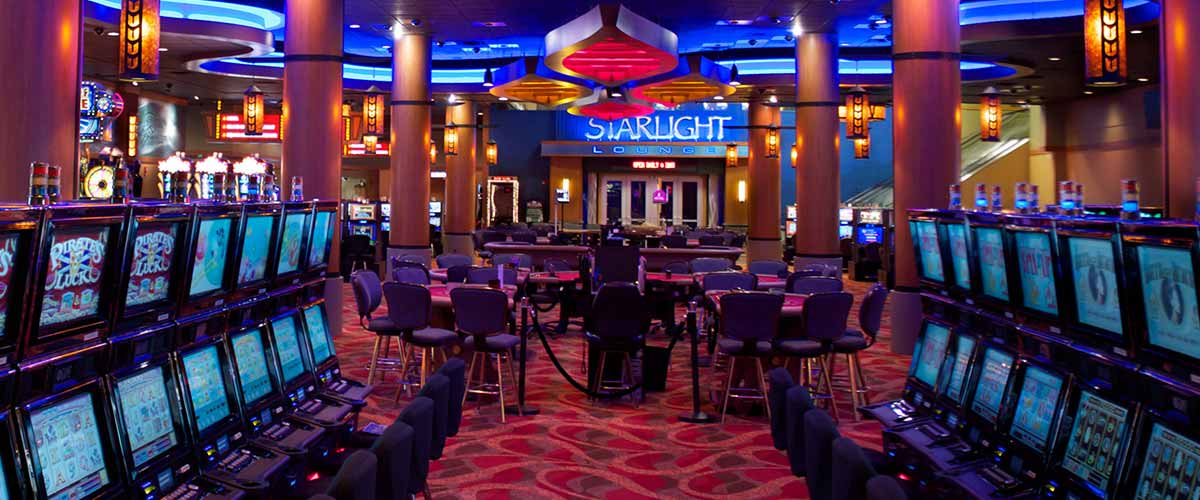
Casino games have long been a engaging source of amusement, drawing numerous of players from diverse cultures around the globe. From the lively casinos of Las Vegas to the bustling gambling halls of the Chinese gambling capital, these games serve as a bridge that unites people across various backgrounds. The allure of luck, skill, and risk entices not only those seeking to win money but also those seeking a sense of community.
The cultural impact of casino games extends significantly past the gaming floor. They often embody the social norms and principles of the cultures in which they thrive. Games such as seven-card stud, blackjack, and the spinning wheel have woven themselves into the fabric of popular culture, influencing everything from movies to clothing. As we explore this captivating intersection of chance and life, we can gain insights into how casino games shape and are affected by the world around us.
Chronological Evolution of Gambling Games
The origins of casino activities can be followed back to old cultures, where betting in multiple forms was widely performed. In Ancient China, around 2300 B.C., a variant of luck game known as Keno was well-known, while in old the Roman Empire, soldiers would regularly gamble on the results of their games. The notion of using chance for entertainment and income developed over the ages, leading to the establishment of more organized games. By the late Middle Ages, betting houses began to surface in the continent, particularly in Italy, which introduced early incarnations of well-liked activities still played today.
As gambling gained recognition in Europe, the 17th and 18th centuries saw the emergence of gambling establishments as specialized locations for gambling. The initial official gambling house, the Ridotto, was founded in Venice in the year 1638, providing activities like Baccarat and the game Faro. This era marked a crucial pivoting point, as gaming venues began to draw not just the high society but also the expanding middle-tier society. The refinement of games grew, leading to the creation of new regulations and modifications that enriched the gaming experience.
In the 19th century, the industrial age and changes in social norms also changed the landscape of gambling games. The arrival of the game of roulette and contemporary gaming machines drew a broader audience, and gaming houses became seen as legitimate fun. This period witnessed the worldwide proliferation of gaming, as gambling houses expanded from Europe to the Western Hemisphere, culminating in the establishment of the iconic Las Vegas Strip in the 20th century. The development of casino games has progressed into the current era, incorporating modern technology and digital platforms, allowing them open to a worldwide market.
# Cultural Importance within Diverse Communities
Casino activities have profound social importance across a multitude of cultures around the planet. In Las Vegas, the very essence of the city is woven around casinos, where playing is not just a recreational activity but a key aspect of entertainment and community life. The dazzling lights and vibrant atmosphere attract countless individuals, showcasing how games of chance can shape local financial landscapes and local cultures. This surrounding transforms the notion of relaxation into an engaging event that influences apparel, music, and even cinema.
Conversely, some communities view wagering with more caution, considering it through the lens of ethical beliefs and tradition. For example, in numerous Oriental societies, games like Mahjong and Pai Gow are full of history and have significant social meanings. These games are often played during gatherings and festivities, fostering social ties and strengthening family ties. The act of playing these games goes above mere leisure, reflecting principles such as honoring elders and the value of communal fun.
Simultaneously, in continental countries such as the principality of Monaco and the Italian Peninsula, gambling activities serve as symbols of luxury and sophistication. The stylish atmosphere of these establishments attracts both travelers and residents, upholding a sense of prestige and rarity. The art of the game of poker and the tactical components of games like the game of baccarat are esteemed, shaping social dynamics and creating an allure that fascinates a varied audience. This emphasizes how games of chance can concurrently mirror and mold societal views towards risk, benefit, and relationship building.
Economic Impact and Travel Industry
Gambling activities play a crucial role in the financial context of many areas, particularly those that rely heavily on tourism. The revenue generated from gambling establishments fuels local economies, creating employment opportunities not only within the casinos but also but also in related sectors such as hotel management, restaurant services, and recreation. This influx of tourists, drawn by the allure of gambling and the overall casino experience, stimulates expenditure across multiple local enterprises, contributing to the economic vitality of the region. five 88
The presence of casinos often leads to the development of infrastructure, including lodging, public transit, and leisure amenities. These improvements are essential in enhancing the overall visitor satisfaction, making destinations more attractive to tourists. Additionally, many casinos invest in local communities through sponsorship of activities and charitable initiatives, further integrating themselves into the community structure of the region. Such investment not only supports economic growth but also fosters a positive reputation of the gambling sector.
Moreover, the worldwide appeal of casino games drives competitive tourism, with locations vying to attract gamblers from across the globe. Iconic destinations like Las Vegas and Macau have become identifiable with casino culture, drawing millions annually. This competitive edge encourages innovation and variety within the gaming industry, influencing developments in entertainment and hospitality that resonate beyond their limits. The ripple effects of this visitor influx extend wide, impacting local financial health and cultural interactions on a worldwide scale.
